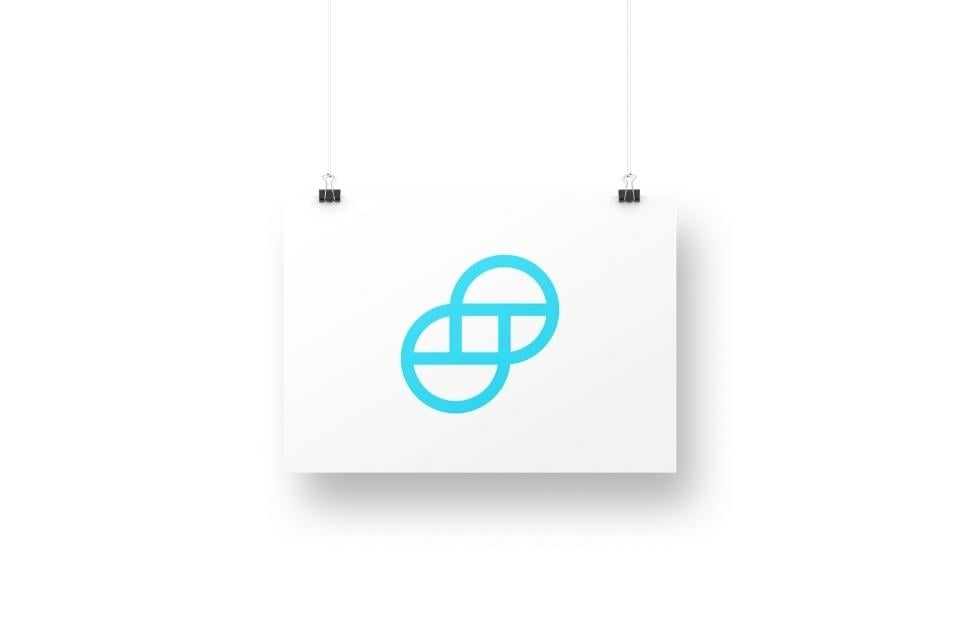Luis Clark
- Home
- /
- Singapore & Crypto
- /
- Crypto Exchanges Singapore
- /
- Coinhako vs. Gemini 2023:...
Coinhako vs. Gemini 2023: Fees, Features & More
Luis Clark
- Headquarter: Singapore
- Year Founded: 2014
- No. of Cryptos: 60+
- Fiats Available: SGD, USD
- Fees: 0.6% for trading fees, zero deposit fee, a withdrawal fee of SGD 2 for inter-bank transfers, 0.3% stablecoin trading
- NFTs Available: No
- Native Coin: No
- Beginner Friendly: Yes
- Platform App: Desktop, Mobile
- Security Features: 2FA, Email Verification, Secure cold storage, Digital asset insurance, Wallet address whitelisting
- Headquarter: New York, USA
- Year Founded: 2015
- No. of Cryptos: 130+
- Fiats Available: SGD, USD, GBP, EUR, +
- Fees: 0.00% to 0.40% maker- taker fee, 3.49% for debit card deposits, and 2.50% fee for PayPal deposits
- NFTs Available: Yes
- Native Coin: Gemini Stablecoin
- Beginner Friendly: Yes
- Platform App: Desktop, Mobile
- Security Features: 2FA, Address whitelisting, ISO 27001- certified, MAS and FCA-regulated cryptocurrency exchange, Digital asset insurance
Coinhako and Gemini are Singaporean-friendly cryptocurrency exchanges licensed by the Monetary Authority of Singapore (MAS). Both exchanges accept direct deposits in Singapore dollars (SGD) and support major cryptocurrencies like Bitcoin and Ethereum.
To help investors decide which is better, we have compared Coinhako vs. Gemini based on a detailed analysis of both platforms.
Coinhako vs. Gemini: Verdict
In this Coinhako vs. Gemini review, Gemini is the overall winner. Nonetheless, both exchanges have a lot of work to do in order to maintain and attract investors. They need to improve their public image and customer support teams, respectively.
Coinhako vs. Gemini: Unique features
The average investor carefully assesses an exchange’s key features before trading. Coinhako and Gemini have various unique features that can help customers trade easily and position themselves for potentially more profits. Below are some of the key features of both cryptocurrency exchanges.
Trading Options
Singaporean and Malaysian crypto traders and investors can take advantage of Coinhako and Gemini’s simple trading platforms. Both exchanges aim to make buying, selling, and trading cryptocurrencies easy – as evident from their website outlooks and accessibility.

High-volume traders and high net-worth individuals on Coinhako and Gemini also enjoy over-the-counter (OTC) trading. With the OTC desk, traders can carry out high-volume transactions without destabilising the main exchange’s order books.

Coinhako offers investors a basic trading platform to instantly buy Bitcoin and other cryptocurrencies in Singapore, while Gemini has an advanced platform called Gemini ActiveTrader. On the advanced platform, users get access to pro trading features and tools like advanced charting, order types, deeper order book visibility, additional trading pairs, futures contracts, etc.
Additionally, the cryptocurrency exchange has a Gemini Clearing feature that settles trades outside the primary exchange (OTC). Typically, these transactions are arranged between parties or brokered by third parties.
There are more trading options available on Gemini than on Coinhako. Therefore, Gemini wins this category.
Rewards and Promotions
Customers can earn passive income via various Coinhako and Gemini reward programs. The most common are referral programs. Gemini rewards existing users with $10 when someone signs up using their referral code and deposits up to $100 (or its SGD equivalent) within 30 days. Coinhako rewards users with up to 20% rebate when they invite friends to create an account and trade using their referral links.

Users can also earn free crypto, gifts and discounts by collecting points and trading frequently on Coinhako. The points accumulated over time can be exchanged for items in the ‘Rewards’ section on Coinhako.

On Gemini, users can earn up to 3% free crypto rewards from chargebacks on every purchase done with the Gemini Credit Card. The exchange also has an affiliate program to reward users and community members who promote the platform’s products and services.
Overall, Gemini offers more rewards to its users than Coinhako. So, Gemini wins in this category as well.
Crypto Services
Coinhako and Gemini allow users to trade crypto and invest in coins and tokens. However, like other top cryptocurrency exchanges, Gemini offers additional crypto-related services beyond trading. On Gemini, users can access different services like
- Payments via the Gemini Credit card
- Bitcoin Gifting
- Stablecoin savings/crypto lending, and borrowing via the USD-backed Gemini Dollar (GUSD).
In contrast, Coinhako is limited to only crypto trading and investing.
Winner in Unique Features
Gemini wins in the features category because it offers more trading options, more rewards and more services.
Coinhako vs. Gemini: Cryptocurrencies Available
Coinhako supports 60+ cryptocurrencies that investors can trade individually or in pairs.
In contrast, Gemini supports 130+ cryptocurrencies.

Cryptocurrencies available on Coinhako include
- Bitcoin
- Bitcoin Cash
- Ethereum
- USD Coin (USDC)
- Litecoin
- Cardano
- Lido Finance
- AAVE
- 1Inch, etc.
Crypto assets on Gemini include;

- Bitcoin
- Ethereum
- Ripple
- Dogecoin
- USD Coin
- Binance USD
- Dogecoin
- Cardano
- Litecoin
- Bitcoin Cash, etc.
Winner in Crypto Availability
Gemini has more coin options and trading pairs that traders can buy and invest in, so it wins this category.
Coinhako vs. Gemini: Can You Buy and Sell NFTs?
Like popular big name exchanges, including Binance and Coinbase, Gemini allows its users to trade non-fungible tokens (NFTs) via its subsidiary, Nifty Gateway.

The Nifty Marketplace lists some of the most sought-after fine art and NFT collectibles today.
Coinhako, on the other hand, doesn’t support NFTs.
Winner in NFTs Availability
Gemini is the winner here, as Coinhako doesn't offer NFTs.
Coinhako vs. Gemini: Fees
Gemini charges between 0.00% to 0.40% for trading fees, 3.49% for debit card deposits and 2.50% fee for PayPal deposits. The exchange also charges crypto withdrawal fees, but they vary from coin to coin.
The exchange does not charge deposit fees for crypto and fiat via Gemini Dollar, bank transfer, and the Automated Clearing House network (ACH) transfer.
Coinhako, on the other hand, charges a 0.6% trading fee and a S$2 withdrawal fee for all transfers from a Coinhako account to a Singapore bank account. But does not charge for deposits.
Winner in Fees
Coinhako’s fee structure is more affordable, and investors looking to reduce trading costs will gravitate toward the platform. With that said, Coinhako wins the fee section.
Coinhako vs. Gemini: Payment Methods
Bitbuy and Coinsmart support payments via:
- Bank transfer
- Card payment
- And cryptocurrency payment
These options make it easy for users to fund and withdraw money from their wallets. Gemini
offers additional payment methods via Gemini Dollar (GUSD) and ACH transfers.
Winner in Payment Methods
With Gemini’s additional payment methods, investors have more options. That means Gemini wins this category.
Coinhako vs. Gemini: Security
Gemini and Coinhako deploy stern security measures to safeguard their customers’ funds and data. Both platforms adopt industry-standard offline cold storage security to protect against hacks and theft.
The two exchanges also adhere to the required Know-Your-Customer (KYC) and anti-money laundering (AML) regulations by the Monetary Authority of Singapore (MAS). As stated explicitly by the MAS, digital assets are regulated on an activity basis rather than an entity basis. This is because they don’t accept it as a form of payment.
Nevertheless, they still regulate most exchanges operating in Singapore under the Payment Services Act.
In addition, both platforms offer users personal security options like two-factor authentication (2FA), biometric login, mobile notifications, one-time passwords (OTPs), etc., to safeguard their accounts. They also allow users to whitelist crypto wallets for funds withdrawals and transfers.
However, Gemini edges Coinhako with its insured crypto wallet. The insurance covers losses of digital assets that Gemini holds in its online hot wallet on customers’ behalf.
Winner in Security
With the additional security feature available on Gemini, the crypto exchange is more secure than Coinhako - and Gemini wins in this aspect.
Coinhako vs. Gemini: Earn/Staking Rewards
Coinhako and Gemini both support crypto staking. Coinhako allows users to lock up several crypto assets and earn periodic interest via the Coinhako Earn feature. However, the cryptocurrency exchange provides no information on the expected annual percentage yield (APY).
13 coins can be staked on Coinhako, including;
- BTC
- ETH
- DOT
- ZIL
- DOGE
- XTZ
- SOL
- LUNA
- MATIC
- AVAX
- BNB
- KSM
- XLM
On the other hand, Gemini offers two staking models called Gemini Earn and Gemini Staking. With Gemini Earn, investors can lock up their crypto and earn up to 8.05% APY on the investment.
With Gemini Staking, investors can lock up their digital assets on Gemini and start earning instant rewards. There is no minimum staking amount for Gemini Staking. Investors can also withdraw their crypto holdings at any time. However, Gemini supports only two coins for staking:
- Polygon (with 4.79% APY)
- Ethereum (with 4.57% APY)

Winner in Earn/Staking Rewards
Both crypto exchanges have staking and earning features, but Coinhako offers a higher APY, making it the winner for this section.
Coinhako vs. Gemini: Usability
The Coinhako website is intuitive, user-friendly, and easy to use, allowing traders to buy and sell cryptocurrencies on the cryptocurrency exchange easily.
Gemini also has a basic Gemini platform that is user-friendly. On this platform, traders can initiate buy and sell orders and settle transactions in no time. Advanced traders will also find the Gemini ActiveTrader useful. The platform is more complicated because it offers additional trading features, but experienced traders can utilise it without hassle.
Like every other exchange, both Gemini and Coinhako have reports of some bugs or issues. On the iOS App Store, investors using the Gemini app complain about difficulties viewing their wallet balance and completing verification via the app. But the app has an overall 4.8 rating from a possible 5, with positive comments around its ease of use.
Unlike Gemini, Coinhako has a 2.4-star rating from a possible five on the Google Play Store, with issues around lags, accessibility, and verification. This shows there’s a lot of room for improvement.
Winner in Usability
Gemini has a better rating and more online positive reviews than Coinhako. That means Gemini wins this category.
Coinhako vs. Gemini: Customer Service
Coinhako and Gemini offer customer support via phone, email, and live support channels. The dedicated support teams are available 24/7 to help solve users’ challenges. Both exchanges also have FAQ sections and blogs where users can find answers to common questions and better understand the exchanges’ features and services.
Going by numerous online reviews and ratings, Coinhako and Gemini can improve customer service and offer users a better experience. According to Trustpilot, Gemini has a 1.2-star rating from a possible 5, with more than 90% negative feedback about the company’s representatives calling too many times. Other users also lament about their crypto holdings being on hold without any good solution from the support team. .
On the other hand, Coinhako has a 1.6-star rating from a possible five on TrustPilot, with over 87% of negative reviews. Most comments refer to the support team’s inaccessibility to verify unsuccessful transactions and late withdrawal settlements.
Winner in Customer Service
Both exchanges fail to meet expectations with their customer support. But Coinhako has a slightly better rating than Gemini, so it wins this section.
Conclusion: Final Verdict
Coinhako and Gemini are two of the biggest crypto exchanges built for the Singaporean and overall Asian markets. Gemini offers both advanced and basic trading platforms for crypto experts and newbies, while Coinhako is only suitable for beginners.
Gemini is a perfect option for traders looking to invest in a diverse range of cryptocurrency options. Meanwhile, Coinhako provides fewer cryptocurrencies.
The major downside to both platforms is their customer support. In this Coinhako vs. Gemini review, Gemini is the overall winner.
FAQ
Most frequent questions and answers
According to the Coinhako website and online reviews, the exchange is licensed by the Monetary Authority of Singapore (MAS) to provide crypto services in Singapore.
Gemini offers users the best security features that make the platform safe. These include KYC/AML procedures, wallet insurance, etc.
Gemini Exchange is headquartered in New York City, USA. However, it offers services in six countries, including Singapore.
Binance charges lesser fees and lists more cryptocurrencies than Coinhako. Investors will consider these factors and will likely go for Binance.
Singapore charges a 7% tax on tradable goods and services, but trading cryptocurrencies and digital tokens are tax-free in the country.
Bitstamp charges maker and taker fees from 0.00% to 0.05%. The exchange fee is lower than the industry average.
We always try to provide the most accurate information available, and make sure our team follow through.
If you want to know more about our Crypto Exchanges Review Methodology follow the link below
Skrumble.com provides all its content for informational purposes only, and this should not be taken as financial advice to buy, trade, or sell any investment instruments or products, including but not limited to cryptocurrencies, or use any specific exchange. Please do not use this website as investment advice, financial advice, or legal advice, and each individual’s needs may vary from that of the author. Investing in financial instruments, including cryptocurrencies, carries a high risk and is not suitable for all investors. It is possible to lose the entire initial investment, so do not invest what you cannot afford to lose. We strongly advise conducting your own research before making any investment decisions. This post includes affiliate links with our partners who may compensate us.
To view our privacy policy read here.










